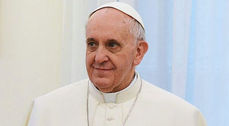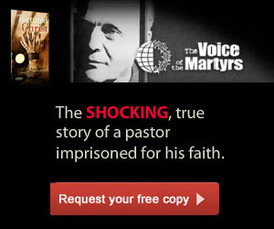
Pope Francis on Sunday said clergy and Christians must not betray the Word of God with their actions or they undermine the credibility of the Catholic Church.
Francis, elected a month ago, inherited a Church struggling to restore credibility after a series of scandals, including the sexual abuse of children by priests.
The pope spoke at the Papal Basilica of St. Paul's Outside the Walls, where he celebrated Mass. He also greeted pilgrims and local Church members earlier in St. Peter's square.
Francis, elected a month ago, inherited a Church struggling to restore credibility after a series of scandals, including the sexual abuse of children by priests.
The pope spoke at the Papal Basilica of St. Paul's Outside the Walls, where he celebrated Mass. He also greeted pilgrims and local Church members earlier in St. Peter's square.
"Inconsistency on the part of pastors and the faithful between what they say and what they do, between word and manner of life, is undermining the Church's credibility," the pontiff said in his homily.
"Those who listen to us and observe us must be able to see in our actions what they hear from our lips, and so give glory to God!"
In his first major decision on Saturday, Francis set up an advisory board of cardinals to help him govern the Church and reform its troubled central administration, which was riddled by infighting and alleged corruption under Pope Benedict.
Benedict left a secret report for Francis on the problems in the administration, known as the Curia, which came to light when sensitive documents were stolen from the pope's desk and leaked by his butler in what became known as the "Vatileaks" scandal.
Since his election as the first non-European pope in nearly 1,300 years, Francis has been laying out a clear moral path for the 1.2-billion-member Church. He has favored humility and simplicity over pomp and grandeur.
Francis has preferred to live in simple quarters in the Vatican instead of moving into the regal papal apartments, and he has said he wants "a poor Church, and for the poor".
In the Sunday afternoon service at St. Paul's, Francis said that each Christian can be a saint, which he defined as "middle class holiness".
"There are the saints of every day, the 'hidden' saints, a sort of 'middle class of holiness'... to which we can all belong."
The pope celebrated Mass together with the Benedictine monks to whom the basilica and the adjoining monastery are entrusted. St. Paul's is one of Rome's four major basilicas and the second largest after St. Peter's.
"Those who listen to us and observe us must be able to see in our actions what they hear from our lips, and so give glory to God!"
In his first major decision on Saturday, Francis set up an advisory board of cardinals to help him govern the Church and reform its troubled central administration, which was riddled by infighting and alleged corruption under Pope Benedict.
Benedict left a secret report for Francis on the problems in the administration, known as the Curia, which came to light when sensitive documents were stolen from the pope's desk and leaked by his butler in what became known as the "Vatileaks" scandal.
Since his election as the first non-European pope in nearly 1,300 years, Francis has been laying out a clear moral path for the 1.2-billion-member Church. He has favored humility and simplicity over pomp and grandeur.
Francis has preferred to live in simple quarters in the Vatican instead of moving into the regal papal apartments, and he has said he wants "a poor Church, and for the poor".
In the Sunday afternoon service at St. Paul's, Francis said that each Christian can be a saint, which he defined as "middle class holiness".
"There are the saints of every day, the 'hidden' saints, a sort of 'middle class of holiness'... to which we can all belong."
The pope celebrated Mass together with the Benedictine monks to whom the basilica and the adjoining monastery are entrusted. St. Paul's is one of Rome's four major basilicas and the second largest after St. Peter's.


 RSS Feed
RSS Feed